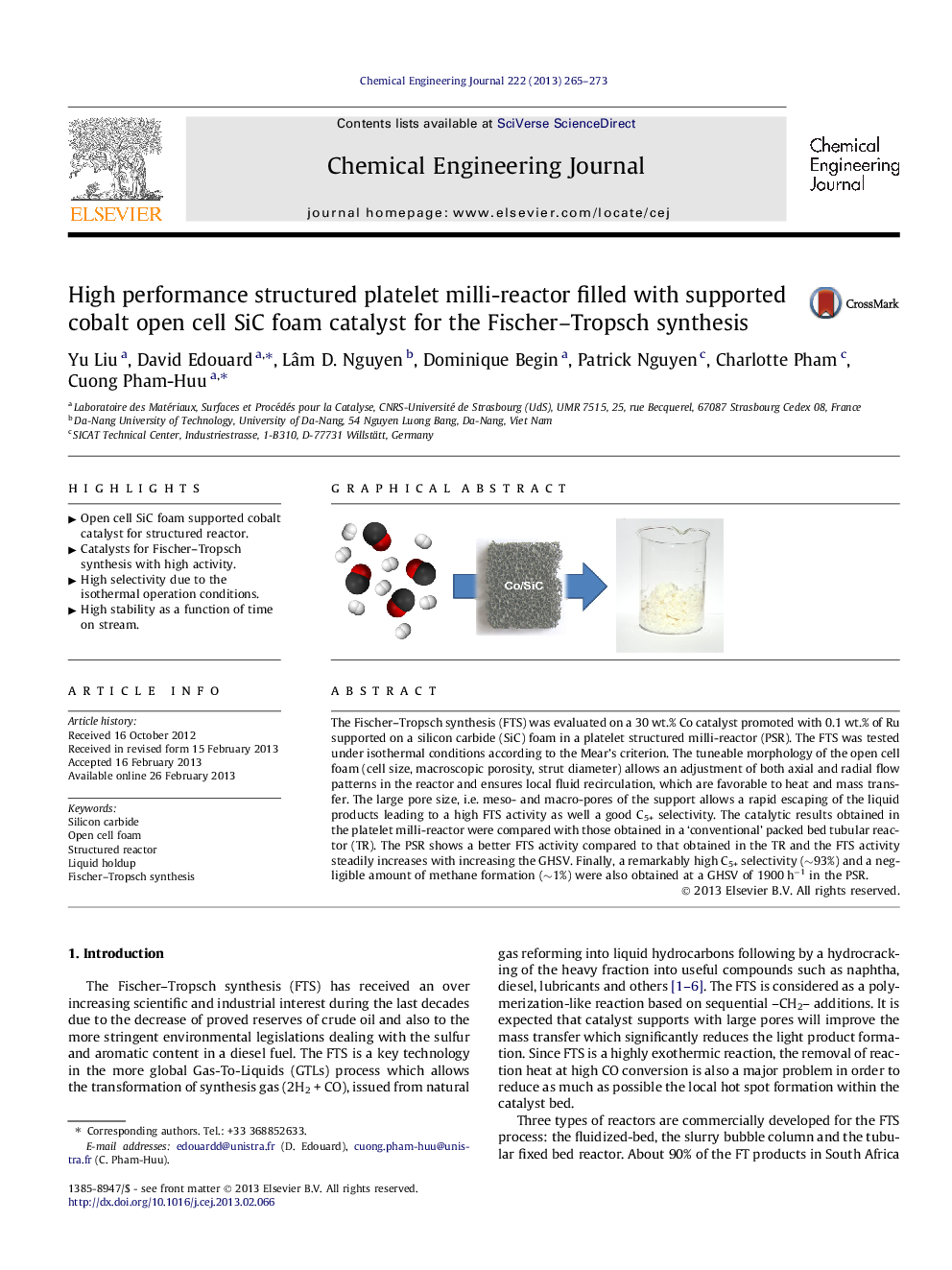| Article ID | Journal | Published Year | Pages | File Type |
|---|---|---|---|---|
| 148584 | Chemical Engineering Journal | 2013 | 9 Pages |
The Fischer–Tropsch synthesis (FTS) was evaluated on a 30 wt.% Co catalyst promoted with 0.1 wt.% of Ru supported on a silicon carbide (SiC) foam in a platelet structured milli-reactor (PSR). The FTS was tested under isothermal conditions according to the Mear’s criterion. The tuneable morphology of the open cell foam (cell size, macroscopic porosity, strut diameter) allows an adjustment of both axial and radial flow patterns in the reactor and ensures local fluid recirculation, which are favorable to heat and mass transfer. The large pore size, i.e. meso- and macro-pores of the support allows a rapid escaping of the liquid products leading to a high FTS activity as well a good C5+ selectivity. The catalytic results obtained in the platelet milli-reactor were compared with those obtained in a ‘conventional’ packed bed tubular reactor (TR). The PSR shows a better FTS activity compared to that obtained in the TR and the FTS activity steadily increases with increasing the GHSV. Finally, a remarkably high C5+ selectivity (∼93%) and a negligible amount of methane formation (∼1%) were also obtained at a GHSV of 1900 h−1 in the PSR.
Graphical abstractFigure optionsDownload full-size imageDownload as PowerPoint slideHighlights► Open cell SiC foam supported cobalt catalyst for structured reactor. ► Catalysts for Fischer–Tropsch synthesis with high activity. ► High selectivity due to the isothermal operation conditions. ► High stability as a function of time on stream.
